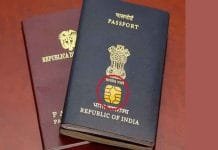As India races toward a fully digital economy, a growing menace is testing its cyber resilience: mobile-based fraud.
At the India Mobile Congress (IMC) 2025, the GSMA released a landmark Digital Scam Report exposing a 25% surge in online and mobile scams over the past year — from phishing SMS and fake UPI alerts to app-based data thefts siphoning billions from unsuspecting users.
The scale is staggering. India logged over 1.2 million digital fraud cases in Q3 2025, with rural and semi-urban users hit hardest due to low digital literacy. Scammers are now exploiting weak verification layers in apps and networks, transforming everyday smartphones into tools for identity theft.
But India’s telecom giants are fighting back.
Reliance Jio, Bharti Airtel, and Vodafone Idea have joined hands under GSMA’s Open Gateway initiative — a new API-based fraud prevention network that enables instant verification of digital transactions without exposing user data or relying on easily compromised OTPs.
Early Open Gateway pilots in Delhi and Mumbai have already shown promising results — blocking up to 40% more fraudulent transactions compared to legacy systems.
GSMA’s Director of Digital Trust emphasized during the IMC session:
“India’s 1.2 billion mobile users deserve digital ecosystems that are trustworthy by design, not just secure by reaction.”
Still, the challenges are real. Experts warn that privacy debates, rural rollouts, and fragmented app compliance could slow adoption.
Cybersecurity tip:
If you’re wary of scams, enable SIM-swap alerts, use official payment apps only, and avoid sharing verification codes, no matter how convincing the caller.
As IMC 2025 continues to highlight the future of digital trust, one message rings clear:
India’s cyber battle lines are drawn — and the war on digital scams is just beginning.
















